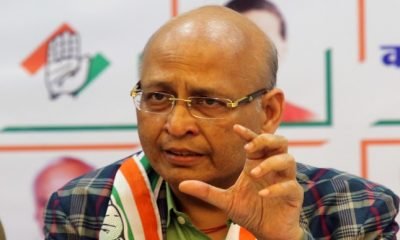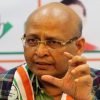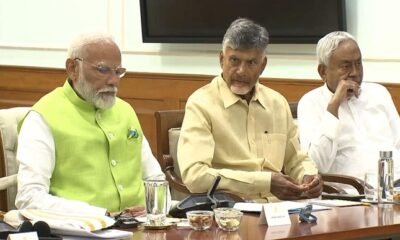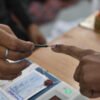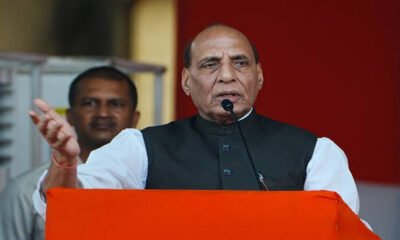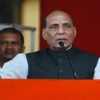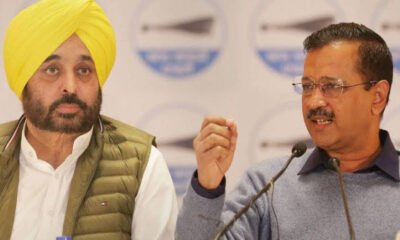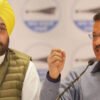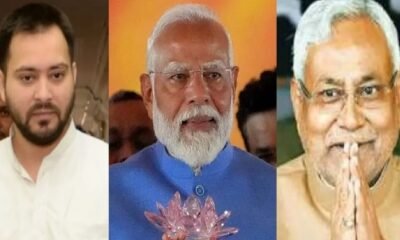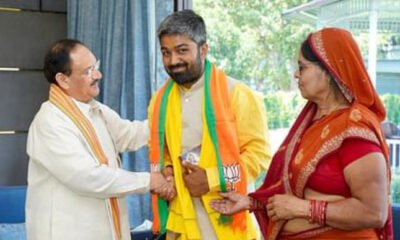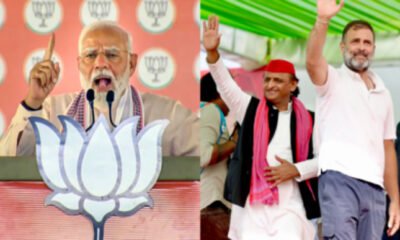National
Dr. Singhvi: The Chanakya of Federalism in India
Ishita Jain.
“Unprincipled defection is a political sin and against constitutional morality”, said senior lawyer and Congress’ sharpest legal brains, Dr Abhishek Manu Singhvi in a recent court hearing. He was referring to former the Deputy CM Sachin Pilot and his team of rebel MLAs which stirred a scandal in Rajasthan politics in the recent days.
A member of Parliament, Jurist, former Additional Solicitor General of India and national spokesperson of the Congress party, Dr Singhvi has had an illustrious career with the Indian National Congress handling a plethora of responsibilities. His association with the media has also been noted for a long time, with the help of his expression force and communication through his amusing and humorous, self-possessed non-emotional conversational talks. Known for his articulate and astute views, Dr Singhvi has always been put at the forefront in matters that require immediate arguments and legal war. Whether it be the bail secured for party leaders Sonia Gandhi and Rahul Gandhi or ensuring a floor test for Harish Rawat-led Congress in Uttarakhand, one person has always been the trusted legal aide for the grand old party: Dr Abhishek Manu Singhvi.
Sachin Pilot and his squad of rebel Congress MLAs challenged the Rajasthan High Court against the disqualification notice issued by Speaker CP Joshi. Pilot was sacked as deputy chief minister and the president of the state unit of the party after he rebelled against Chief Minister Ashok Gehlot. The petition said the Speaker might have been forced by Gehlot to issue the notice. The petition was taken up by a bench of Chief Justice Indrajit Mahanty and Justice Prakash Gupta on Friday and arguments were held.
The notices to MLAs were served after the ruling party complained to the Speaker that the MLAs along with the then Deputy CM failed to attend two Congress Legislature Party meetings, on Monday and Tuesday last week. In its complaint to the Legislative Assembly Speaker, the Congress had sought action against Pilot and the other dissidents under paragraph 2 (1) (a) of the Tenth Schedule of the Constitution. The provision disqualifies MLAs if they ‘voluntarily’ give up the membership of the party which they represent in the House.
The Pilot camp, however, argued that the Tenth Schedule is applicable only when the assembly is in session, alleging that if permitted it will be misused by the ruling party against the elected candidates. Representing the Speaker of Rajasthan Legislature, Dr Singhvi argued that his client was within his remit while taking into account dissidents’ speeches and activities even outside the House to decide a disqualification petition. Dr Singhvi argued that the Speaker’s consideration of “allegations of speech and activities outside the House” is not mala fide and within the contours of the Constitution. He claimed that assembly speakers across state legislatures have done so in a manner consistent with the Tenth Schedule and in cases “identical” to the current one.
The core legal debate revolves around the application of the Tenth Schedule of the constitution challenged by Harish Salve, a senior advocate representing Sachin Pilot. “If the challenge to constitutionality of the Tenth Schedule is allowed, all judgments of the Supreme Court [including the landmark decision in Kihoto Hollohan (1992)] would be rendered useless by the High Court. Their argument is unsupported by law and is based on implausible leaps of imagination,” Dr Singhvi submitted to the court.
The court has reserved its judgment for the petition for 24th July. If Team Pilot is disqualified from the assembly, a trust vote for Dr Gehlot will become far easier – with the total number of MLAs reducing, the majority mark will also plunge to a number far more within his reach. Further, the dismissed MLAs will have to run for election again.
This is not the first time that Dr Singhvi would be dealing with such a scenario. In 2013 Jharkhand State Elections, Jharkhand Mukti Morcha (JMM) withdrew support to the BJP-led government under Arjun Munda that lead to the imposition of President’s rule for nearly six months. The CM was appointed bizarrely and was given a long time to prove majority. In an unusual display of its constitutional might, the Supreme Court intervened in the proceedings and fixed the date of the floor test. It delivered judgments in favour of the former CM Arjun Munda. Dr Singhvi objected to the request of Munda’s counsel, Mukul Rohtagi, to appoint an observer of the court in the Assembly during the voting. Dr Singhvi said the Constitution had recognized certain fine balance between its top functionaries. Nonetheless, the JMM-Congress-RJD Alliance won the floor test.
Bihar Floods, an additional severe threat for Biharis
After the NDA government started its tenure in the centre, all political parties have faced the issue of deflection in the state elections. Starting with the abrogation of the President’s rule in Uttarakhand in 2016. It was imposed a day before the floor test in the Uttarakhand Assembly as the Centre knew that Chief Minister Harish Rawat would be able to prove his majority. President Pranab Mukherjee signed the proclamation under Article 356 of the Constitution. Later revoked on accounts of a constitutional crisis, Harish Rawat won the floor test and the Congress came to power in the Uttarakhand assembly. This precedent was followed in the 2017 Manipur State Elections where the governor invited BJP leader Biren Singh to form the government despite Congress being the single largest party by vote share. “The basic structure of the Constitution cannot be changed even by the Parliament of India. But the BJP is managing it successfully in the state after state through Governors and a complete wholesale violation, complete jettisoning of all constitutional principles. How can the Governor appoint a CM within 24 hours and notify it via a press release,” the Congress leader wondered.
He dealt with a similar situation during Karnataka elections in 2018. Speaking to Bloomberg’s Quint, he provided a detailed account of all the events, as they unfolded. “In the 40 hours between the Karnataka election results and the Supreme Court’s decision on Friday to reduce the time given to the Bharatiya Janata Party’s BS Yeddyurappa to prove his majority on the floor of the state’s assembly, the Indian National Congress mounted a multi-pronged strategy to keep the BJP out of power”, he said. Unsure about who would be called to form the government, Dr Singhvi and his team kept revising their petition and filed it at 9:30 pm when the governor invited BJP to form the government instead. In the early morning hours, the Supreme Court commenced its hearing over the petition filed by the Congress-JD(S) alliance. Representing the same, Dr Singhvi argued, “Yesterday, Congress legislature party passed a resolution supporting JD(S). HD Kumaraswamy submitted 37 MLAs signatures to the Governor, supporting Congress. BJP has just 104 MLAs in support and the Governor has invited BJP leader BS Yeddyurappa to form the government. It is completely unconstitutional. This is the convention citing the Sarkaria Commission report that asserts that if there is no clear majority, the Supreme Court bench order in Rameshwar case is the sequence of approach. We are challenging the act of the governor to not call me to form Government. We are not saying we can form the government or not. The issue is of the person who has been called.” He further claimed that it is arithmetically impossible for BJP to prove majority and ask the Supreme Court to impose a stay on Yeddyurappa’s swearing-in ceremony as it was purely an executive action. HD Kumaraswamy led Congress-JD(S) alliance formed the government, however, later due to deflection of 17 MLAs from Congress, Yeddyurappa was once again sworn in as the CM in 2019.
In Karnataka, Congress was able to do what appeared impossible to many. The credit goes to the party’s sharp legal brains, Dr Singhvi. He is the youngest person to be appointed/elected Senior Advocate, Additional Solicitor General (ASG) of India and Vice-President, Supreme Court Bar Association (SCBA). He has appeared in several cases that saw landmark decisions of the Supreme Court on Constitutional Law, Commercial Law and several other areas of Civil Law. But it’s not always the Supreme Court or High court that Dr Singhvi has fought battles in for the Congress party. He has also represented telecom companies in important cases and shaped the industry’s future.
Dr. Singhvi in true sense has left no stone unturned to work through the debacle faced by his party in the courtroom tussles and is now India’s most prominent lawyers.



